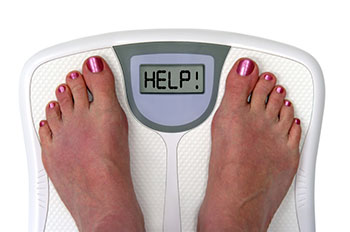More Health and Nutrition Bites
Related
Dieting and Osteoporosis
It should be common knowledge by now that constant dieting and yo-yo dieting are poor concepts to live by. Importantly, a study by the USDA's agricultural Research Service (ARS) recently (April, 1999) showed that women who ate simply to avoid weight gain had an increased risk for osteoporosis. Osteoporosis is a condition of bone mass loss that eventually results in fractures.
Feel Fuller While Dieting
We know that breakfast can help you lose weight and that those who skip breakfast tend to have a higher Body Mass Index than those who do eat breakfast. If you eat breakfast, you're also less like to snack during the rest of the day and are less likely to have heart failure. Previous research has looked at eating higher fiber meals in the morning, such as high fiber cereals or whole grain breads or muffins.
Dairy and Weight
Although the dairy council no longer advertises that drinking milk or eating yogurt will help you lose weight, I still have the occasional patient who will ask me about it. Usually I tell them about the two studies I've reported on, first way back in 2006 and then another in 2009, that essentially concluded that dairy products by themselves would have no impact on weight: the gold standard for weight loss is still calories in versus calories out.
Health & Nutrition Bites
Get the latest health and diet news - along with what you can do about it - sent to your Inbox once a week. Get Dr. Gourmet's Health and Nutrition Bites sent to you via email. Sign up now!
Is Yo-Yo Dieting Harmful?

There has been the thought for years that repeated weight loss and regain - "yo-yo dieting" - is harmful. The consideration has been that this can result in weight loss being more difficult with each attempt due to change in metabolism as well as adverse effects on the body. Some research of different populations has shown that this might be the case with increased death rates.
A group of researchers at UCLA evaluated information from 480 participants in an outpatient weight loss program (Diab Obesity & Met 2007:9(3);379-385). The group had been drawn from a larger group of those in the program but the 480 males and females were those who had restarted the diet at some point during a 12 year period. The diet plan used is what is known as a Very Low Calorie Diet (VLCD). Such plans rely on intakes of only 700 to 800 calories per day.
When the researchers compared dieters with multiple starts (MS) to those single start (SS) participants they found them to be very similar at the beginning of their diets as age, race and initial Body Mass Index (BMI). Interestingly, more men than women were in the MS group. During retries at weight loss there was no difference in the rate of weight loss in either men or women and it didn't matter the number of tries -- each time they lost weight at about the same rate. Most participants maintained some weight loss between periods of being on the diet.
Likewise, there was no adverse effect on risk factors for heart disease such as cholesterol or blood pressure. In fact, all groups who lost weight had improvement in their cholesterol and triglycerides and drops in blood pressure from baseline (although there was better improvement after the initial diet session).
What this means for you
If you are struggling with a weight issue, keep working on a solution. We know that there's dramatic improvement in health whether the weight is lost slowly or quickly. Evidence shows that slow, steady weight loss appears to be more sustained weight loss, but this research proves that starting again is also beneficial.
First posted: March 28, 2007
